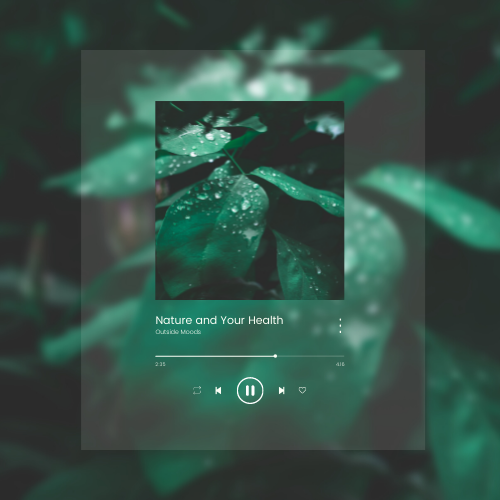
Why Talk About Climate Change ?

Increasing a patient’s knowledge of the effects of climate change, including the negative impacts it can have on their health, is critical to combat climate change. Integrating climate and nature into health information will empower individuals to interact with nature more and be more engaged with solutions to climate change.



Evidence-based information helps build capacity to engage in public health activities related to climate change and the positive impacts for patients when they interact with nature while helping to midgate climate change and the effects on individuals/population health due to climate change.



To help facilitate and foster knowledge of the health effects of climate change while educating people on ways they can positively interact with nature to improve their overall health and reduce their impact on the natural environment.
Why Prescribe Nature?


It’s Easy and Effective
Health-care providers are always looking for simple, practical interventions to improve their patients’ lives. Research shows that that spending time in nature has a wide range of positive effects on human health, from reduced chronic disease to improved mental health, not including the known benefits of regular exercise.
Health Benefits
Getting outside adds up fast, whenever patients feel like they’ve had meaningful contact with nature, from a walk in the park to sitting on a park bench or asking down a mountain. This makes the process of setting green-time goals patient-centered and self-directed.
The TWO and TWENTY Rule
2 hours a week, being physically active at least 20+ minutes in length. Research shows that people who spend at least 2 hours per week in nature report significantly better health and wellbeing.
Good for the Earth
Research shows that people who are more connected to nature do more to protect it. So not only are you improving your patients’ health, but you’re also doing your part for the planet.
Tips for Creating Climate Change Habits



Make Natural Spaces Part of the Solution
When working with patients towards changes in diet, exercise, and sleep habits, remember to add nature time as a recommendation and why nature is part of their health.



Make it Unique
Recognize and reduce barriers. Remember that almost anyone can increase the time they spend in nature, no matter their physical abilities or where they live. Make the plan place-based: give them options to add walking into everyday activities and show them green spaces nearby.



Schedule and Follow-Up
Patients are more likely to stick to a commitment when they write it down—check-in on your patient’s progress at the next appointment.


Lead with Actions
Health-care providers who integrate Climate and Nature habits into their health recommendations are more likely to see patients have greater overall health outcomes than those that do not.
Evidence-Based Resources
All our printable handouts and resources are below.
For Adults
Heart Health
Mental Health
Respiratory Health
For 55+
For Childern
Early Life
Mental Health
Respiratory Health
Healthy Weights
For You
Vector-Borne Disease
Increasing Temperatures
Your Lungs
Your Food
Two & Twenty Challange
Side Effects from helping to Protect the Planet’s Health May Include:
Interested in the latest news on Climate and Health
Get the Latest Updates!








